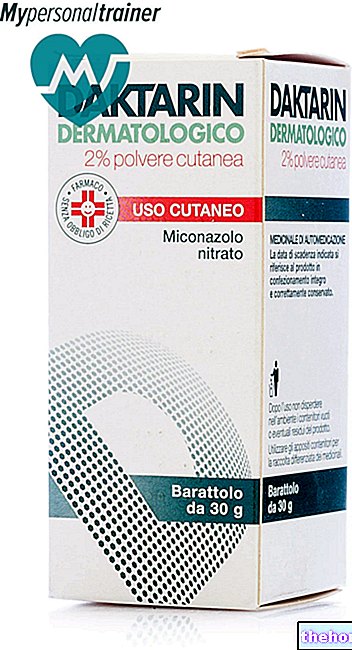Active ingredients: Tamsulosin (tamsulosin hydrochloride)
Omnic 0.4 mg prolonged-release film-coated tablets
Omnic package inserts are available for packs:- Omnic 0.4 mg prolonged-release film-coated tablets
- Omnic 0.4 mg modified-release hard capsules
Indications Why is Omnic used? What is it for?
The active ingredient in Omnic is tamsulosin, a selective α1A / α1D antagonist drug that reduces muscle tension in the prostate and urethra. This allows urine to pass faster through the urethra making urination easier. In addition , it decreases the feeling of urgency to urinate.
Omnic is used in men to treat lower urinary tract symptoms associated with an enlarged prostate (benign prostatic hyperplasia). These disorders may include difficulty urinating (decreased flow), dribbling, urgency, and increasing frequency of urination both day and night.
Contraindications When Omnic is not to be used
Do not use Omnic if you are allergic (hypersensitive) to tamsulosin or any of the other ingredients of Omnic. Hypersensitivity may present as sudden local swelling of soft tissues in the body (eg throat or tongue), difficulty in breathing and / or itching and rash (angioedema), if you have severe liver problems,
if you have fainting due to a drop in blood pressure when you change your body position (sitting up or standing up).
Precautions for use What you need to know before taking Omnic
Take special care with Omnic
Periodic medical check-ups are needed to monitor the development of the condition for which you are being treated
Rarely, fainting may occur with the use of Omnic, as with other medicines of this type. At the first signs of dizziness or weakness you should sit or lie down until they disappear.
If you have severe kidney problems, please tell your doctor.
If you are undergoing or scheduled for eye surgery for clouding of the lens (cataract) or increased pressure in the eye (glaucoma). Please tell your ophthalmologist if you have previously taken, are taking or are planning to take Omnic. The specialist can consequently take appropriate precautions regarding the medicinal product and the surgical technique to be used. Ask your doctor if you should postpone or temporarily stop treatment with this medicine before undergoing eye surgery for clouding of the lens (cataract) or increased pressure in the eye (glaucoma).
Children
Do not give this medicine to children or adolescents under 18 years as it is not effective in this population.
Interactions Which drugs or foods may change the effect of Omnic
Taking Omnic with other medicines
Taking Omnic with other medicines of the same class (α1-adrenoceptor antagonists) may cause an unwanted drop in blood pressure. Tell your doctor or pharmacist if you are taking or have recently taken any other medicines, including those not prescribed. It is especially important to tell your doctor if you are being treated at the same time with medicines that may decrease the elimination of Omnic from your body (eg ketoconazole, erythromycin).
Warnings It is important to know that:
Taking Omnic with food and drink
You can take Omnic both during and away from meals.
Pregnancy, breastfeeding and fertility
OMNIC is not indicated for use in women.
Abnormal ejaculation (ejaculation disorders) has been reported in the man. This means that seminal fluid does not leave the body via the urethra but enters the bladder (retrograde ejaculation) or that the ejaculation volume is reduced or absent (ejaculation failure). This event is harmless.
Driving and using machines
Omnic has not been shown to affect the ability to drive or use machines or equipment. However, you should be aware of the possibility of dizziness, in which case you should not engage in activities that require attention.
Dose, Method and Time of Administration How to use Omnic: Posology
Always take Omnic exactly as your doctor has told you. If you are unsure, you should consult your doctor or pharmacist. The usual dose is 1 tablet per day. You can take Omnic with or without food, preferably at the same time of the day.
The tablet should be swallowed whole, without crushing or chewing it.
Omnic is a specially designed tablet, able to gradually release the active ingredient after its ingestion. You may notice residues of the tablet in your stool. Since the active ingredient has already been released, there is no risk of a lower efficacy of the tablet.
Omnic is usually prescribed for long periods of time. Effects on bladder and urination are maintained following long-term treatment with Omnic.
Overdose What to do if you have taken too much Omnic
If you take more Omnic than you should
Taking too much Omnic can lead to an unwanted drop in blood pressure and an increase in heart rate, associated with a feeling of weakness. If you have taken too many doses of Omnic, consult your doctor immediately.
If you forget to take Omnic
If you have forgotten to take a dose of Omnic, you can take it later in the day. If you have missed a day, continue taking your tablet of the day at the usual time. Never take a double dose to make up for a forgotten one.
If you stop taking Omnic
When Omnic treatment is stopped prematurely, the initial symptoms may reappear. Therefore, continue to take Omnic for as long as your doctor prescribes it, even if your symptoms have already disappeared. Always consult your doctor if you believe this therapy should be discontinued.
If you have any further questions on the use of this medicine, ask your doctor or pharmacist.
Side Effects What are the side effects of Omnic
Like all medicines, Omnic can have side effects, although not everybody gets them.
Common effects (less than 1 case in 10, more than 1 case in 100 (1-10%)): dizziness, especially when sitting or standing up.
Abnormal ejaculation (ejaculation disorder). This symptom means that seminal fluid does not come out of the body through the urethra but enters the urinary bladder (retrograde ejaculation) or that the volume of seminal fluid is reduced or absent (ejaculation failure. ) This event is harmless.
Uncommon effects (more than 1 case in 1000, less than 1 case in 100 (0.1-1%)):
headache, palpitations (the heart beats more often than normal and is also noticeable), decrease in blood pressure such as getting up quickly from sitting or lying down often associated with dizziness, stuffy or runny nose (rhinitis), diarrhea, nausea and vomiting, constipation, weakness (asthenia), rash, itching and hives
Rare effects (more than 1 case in 10,000, less than 1 case in 1000 (0.01-0.1%)):
fainting and cases of sudden localized swelling of the soft tissues of the body (e.g. throat and tongue), difficulty in breathing and / or itching and rash (rash), as frequently in an allergic reaction (angioedema).
Very rare effects (less than 1 in 10,000 (
priapism (painful and prolonged involuntary erection requiring immediate medical treatment). Rash, inflammation, blistering of the skin and / or mucous membranes of the lips, eyes, mouth, nostrils or genitals (Stevens-Johnson syndrome).
Effects with frequency not known (frequency cannot be estimated from the available data):
- blurred vision
- visual impairment
- nosebleed (epistaxis)
- severe skin rashes (erythema multiforme, exfoliative dermatitis)
- abnormal irregular heart rhythm (atrial fibrillation, arrhythmia, tachycardia), difficulty in breathing (dyspnoea).
- if you are about to have eye surgery due to clouding of the lens (cataract) or increased pressure in the eye (glaucoma) and you are already taking or have recently taken Omnic, the pupil may dilate poorly and the iris (the colored circular part eye) may become flabby during surgery.
- dry mouth.
If any of the side effects gets serious, or if you notice any side effects not listed in this leaflet, please tell your doctor or pharmacist.
Reporting of side effects
If you get any side effects, talk to your doctor or pharmacist. This includes any possible side effects not listed in this leaflet.
You can also report side effects directly via the national reporting system at https://www.aifa.gov.it/content/segnalazioni-reazioni-avverse. By reporting side effects you can help provide more information on safety. of this medicine.
Expiry and Retention
Keep Omnic out of the reach and sight of children.
Do not use Omnic after the expiry date which is stated on the blister and carton after "EXP" (month and year). The expiry date refers to the last day of the month.
Store in the original packaging.
This medicinal product does not require any special storage conditions.
Medicines should not be disposed of via wastewater or household waste. Ask your pharmacist how to throw away medicines you no longer use. This will help protect the environment.
OTHER INFORMATION
What Omnic contains
The active ingredient is 0.4 mg tamsulosin hydrochloride.
The other ingredients are: in the tablet core: macrogol 7,000,000, macrogol 8,000, magnesium stearate (E470b), butylhydroxytoluene (E321), anhydrous colloidal silica (E551); in the tablet coating: hypromellose (E464) and the dye iron oxide yellow (E172).
What Omnic looks like and what is in the box
Omnic tablets are round, yellow, film-coated and marked "04".
Omnic tablets are packaged in aluminum blisters contained in a carton box that is printed with the name Omnic 0.4 mg prolonged release film-coated tablets.
The packs contain 10, 14, 18, 20, 28, 30, 45, 50, 56, 60, 90, 100 or 200 tablets.
Not all pack sizes may be marketed.
Source Package Leaflet: AIFA (Italian Medicines Agency). Content published in January 2016. The information present may not be up-to-date.
To have access to the most up-to-date version, it is advisable to access the AIFA (Italian Medicines Agency) website. Disclaimer and useful information.




























